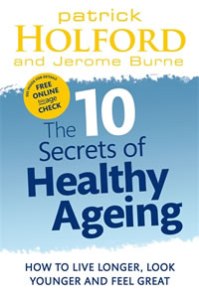Two recent reports have just peered into a murky corner of evidence based medicine and found illegal doings and a distinct lack of evidence
Over 11% of the prescriptions handed out in Canada were done off-label, according to a study published yesterday What this means that there weren’t clinical trials backing up their use for that condition. An example would be SSRI anti depressants being given to treat the menopausal symptoms when they have a licence to treat depression.
Now there are perfectly good clinical reasons why drugs might be given off label but this is also a seriously murky area of evidence based medicine. Nowhere is this more true than in what goes on with off-label prescribing of psychiatric drugs, especially the heavyweight tranquilisers known as antipsychotics. Last week came the report that the company that makes ones of these drugs called Risperdal (Risperidone) had been fined 1.1 billion dollars for improper marketing by a court in Arkansas.
This is just the latest twist in a very long running saga which you hear almost nothing about in the UK, even though in 2009 in England alone there were over a million prescriptions for Risperdal at a cost of £18 million. Three months earlier the company Johnson and Johnson (J&J) had agreed to pay 158 million dollars to settle another case and that came on top of a total of 584 million dollars worth of fines paid in the previous two years.
The off-label issue in these cases mainly centred round illegal promoting the drug to doctors as a treatment for elderly patients with dementia, something known to raise the risk of heart problems and for which there isn’t a licence. The other element was “false or deceptive acts” which meant sending letters to doctors claiming that Risperdal was safer than other antipsychotics. In fact like the others it caused serious weight gain and raised blood sugar levels which can lead to diabetes.
There are several issues here that are relevant to the question of just how strictly evidence based medicine principles are being followed. Firstly it’s not just J&J who have been fined for this improper and illegal marketing – the makers of the three other biggest selling antipsychotics – Seroquel, Zyprexa and Abilify – have all been fined over two billion dollars between them in recent years for the same sort of behaviour.
And, to bring the issue back home, these drugs are also heavily used in the UK, especially on the elderly .A report published just over two years ago estimated that this off label prescribing had been responsible for the death of 1800 dementia patients a year.Yet even though we were using the same drugs produced by the same companies, there has never been even the suggestion of any kind of improper behaviour when promoting them in the UK.
But maybe the clearly inappropriate and reckless use of antipsychotics was oddity. Perhaps it is usually done responsibility, as official bodies claim. But this leads to the second point. There are guidelines both here and in the USA that say such prescribing has to be done according to an assessment of the evidence on the clinicians own judgement. The evidence suggests otherwise.
The Canadian study is not the first to try to put a figure on the number of drugs prescribed off-label. Several years ago an American study estimated it at about 20%. More alarmingly both studies also calculated how appropriate the prescribing was. In both cases it was found that over 70% of the prescriptions “lacked strong scientific evidence”.
So how common is this practice in the UK. We have no idea. Just as there no investigation into drug companies marketing activities and no attempt to censure anyone for prescribing drugs that were not only unlicensed but specifically contra-indicated, there has never been any attempt to find out how much off label prescribing goes on.
It would be worth doing because a number of other drug disasters happened with ones used widely off label including HRT (cancer and heart disease), SSRIs for children (suicide) and low dose aspirin for the heart (benefits didn’t outweigh the risks). With light touch regulation, evidence for a lack of evidence is hard to find.



Leave a reply